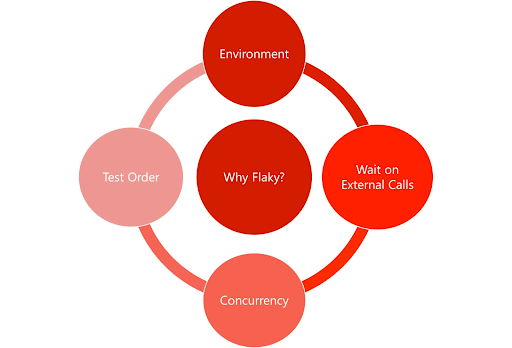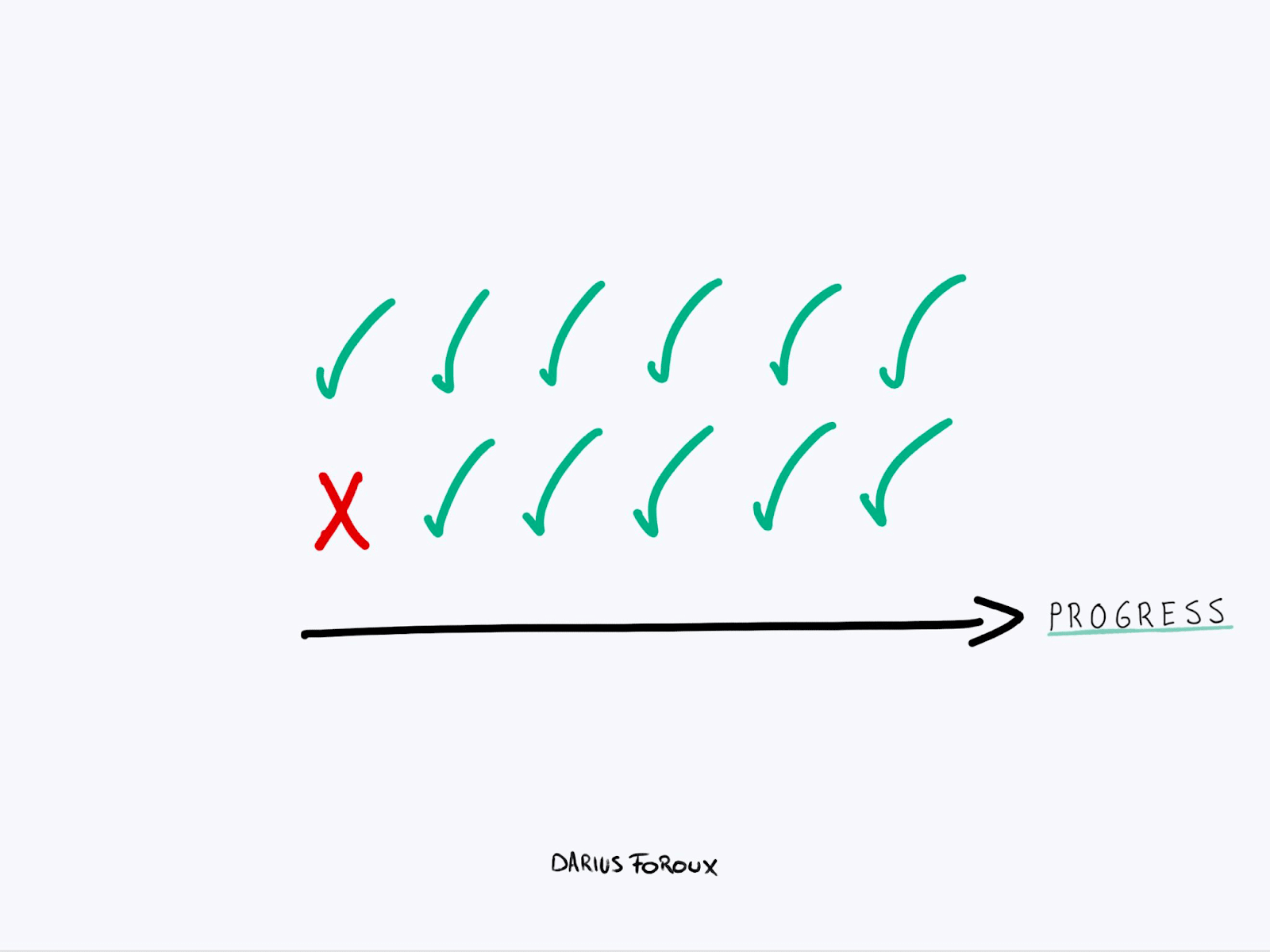Preventing Flaky Tests in Enterprise Test Execution with AI Tools
Laveena Ramchandani
Posted On: March 14, 2024
![]() 26503 Views
26503 Views
![]() 8 Min Read
8 Min Read
In the dynamic world of software testing, one persistent challenge continues to haunt testers and developers alike: flaky tests. The tests are flaky, which means one cannot say that the test is a good test to use or provides confidence. However, there are two ways of seeing this, one is that it has broken down a test and the team cannot rely on it, or it could be a test that leads to an opportunity that could unravel something the test team did not know of. Either way, it’s a challenge. In this blog, we’ll discuss flaky tests and how to tackle these, especially for enterprise test executions.
What are “Flaky” tests?
The answer is: that if you run your test suite, everything looks green and good to go. But wait! The next time you run it, bam! Red alert! Some tests fail for no apparent reason. That’s the flakiness we’re talking about – tests that are as unpredictable as the weather on a spring day.
Now, let’s get real. Flaky tests can be a real headache, especially in the fast-paced world of enterprise test execution. They mess with our heads, shake our confidence, and sometimes even make us question our sanity. But hey, we’re in this together, right?
So, why do these flaky tests even exist? Well, it’s like a perfect storm of factors – from wonky test environments and finicky network conditions to the occasional gremlin hiding in the code. They’re like the mischievous little siblings of our otherwise reliable tests, popping up when we least expect them.
And let’s not forget the power of community! We’re all in this together.. Sharing our war stories, trading tips and tricks, and lending a helping hand to fellow testers and developers – that’s what it’s all about. Because when it comes to flaky tests, the more the merrier!
So, what could be some reasons we experience Flaky tests?

When we are planning to bring in test automation, the team can face a lot of challenges from what tool to use, a framework that works best with the tool, what type of tests to write, and whether it will be TDD/BDD or ATDD. There are so many things to think about which makes our tests better at the end of the day, but can also encounter flakiness amidst all the new changes. Therefore some of the following things can lead to flaky tests;
- Not having a framework or utilizing the framework correctly. Therefore it is vital to think ahead of time what sort of framework the team can use or knows how to use. Also, check if there is support for the framework.
- Use of environments can also lead to flaky tests, how, you may think? Well, when testers have their independent environments, the flaky test might not be a big issue, but having shared environments means other testers are merging their tests too. The shared environment can start becoming unstable due to various reasons, that’s where flakiness could happen.
- Data is an issue many times for the automated tests as it becomes difficult to understand whether to call the data file or hard code some data with the risk that it might change in the future therefore hard coded data is not the way forward and will lead to many challenges. A good solution could be having a data management tool and using that for more accuracy.
- Also, we tend to make interdependent tests many times, without thinking if one test fails the other automatically. Therefore avoid dependent tests and keep them isolated and that’s why you must pick and choose wisely what scenario is worth automating.
- Just as it’s important to plan what to automate, it is equally important to write good automated tests and not poorly scripted tests such as for API tests not using the Xpath but using other attributes that can change all the time, and then the consequence will be flaky tests, you guessed it!
- If you are running tests in parallel, you will know that it is quite powerful yet expensive, therefore if you make use of good synchronization it will always help the result.
As we have learned about what re flaky tests in details but you might be wandering what are the reasons that an flaky test might occur well, there are several reasons for flaky tests to occur, especially in complex enterprise workflows, making them challenging to identify. Engineers, developers, and testers often find flaky tests unpredictable and frustrating, attributing these issues to unstable test environments, data management challenges, and poorly scripted tests.
To understand the perspectives of developers and testers, watch the entire video tutorial. It explores the issues from different angles and provides insights on identifying the root causes of flaky tests. The video also offers ideas on how to rectify these issues.

The Challenge of Flaky Tests:
Flaky tests, appear and disappear seemingly at random, leaving testers scratching their heads and developers scrambling to fix them. At the enterprise level, where testing is conducted at scale across multiple teams and environments, the impact of flaky tests is magnified. Not only do they consume valuable testing resources, but they also introduce uncertainty and instability into the project lifecycle.
In a recent LambdaTest survey, flaky tests emerged as a significant concern among over 1,600 QA professionals globally. They revealed spending approximately 8% of their time on such tests, almost equivalent to the time spent (10.4%) on setting up and maintaining test environments.
The consequences of flaky tests extend far beyond wasted time and effort. They undermine the stability of the entire project, leading to delayed releases, increased risk of defects slipping into production, and ultimately, a poor user experience. Sometimes when developers and testers fail to resolve the issue behind flaky tests, it may lead to bad team morale.
Well, one solution to deal with this is to utilize AI-based testing tools that come with flaky test detection capabilities. These tools leverage machine learning algorithms to analyze test results, identify patterns of flakiness, and predict which tests are most likely to fail. Automating the detection and resolution of flaky tests, enables the teams to focus their efforts on fixing the most critical issues, rather than wasting time chasing false positives.
How AI-Based Tools Help with Flaky Test Detection

According to the Future of Quality Assurance Survey, 60.60% of organizations believe that AI will improve the productivity of teams, and humans will continue to play a major role in testing. This suggests a widespread view that AI will be an enhancer rather than a full replacement in the testing process.
Similarly, AI can help support Flaky tests too, you may ask how?
The answer is that AI offers a powerful solution for addressing the challenge of flaky tests, helping teams improve the reliability, efficiency, and effectiveness of their testing practices.
If you make use of a good AI tool in your test management tool it can help with Flaky tests by:
- Detecting the flaky tests
- Prediction of them
- Root cause analysis
- Automate the detection, analysis, and resolution of the flaky tests
AI provides notable advantages in preventing flakiness. Quick data analysis helps identify patterns and anomalies, speeding up the process and saving time. This automation allows teams to focus on critical features instead of diving deep into resolving a single flaky test, leading to enhanced accuracy with advanced machine learning algorithms.
Early detection and prevention are crucial, and AI, with its precise ML algorithms, reduces false positives. Root cause analysis, often overwhelming for a tester, becomes manageable as AI sifts through historical data, dependencies, conditions, and code changes, pinpointing flakiness locations. Embracing AI isn’t just adopting a cutting-edge tool; it signifies continuous improvement for enhanced test accuracy and effectiveness.
Conclusion
Flaky tests pose a significant challenge for enterprise test execution, consuming valuable time and resources and undermining project stability. However, with the advent of AI-based tools with flaky test detection capabilities, organizations have an opportunity to revolutionize the testing landscape. By leveraging tools with artificial intelligence, teams can streamline their testing processes, improve project stability, and deliver high-quality software faster and more efficiently than ever before.
LambdaTest’s AI-Powered Test Intelligence helps teams to take data-driven actions in identifying, resolving, and preventing flaky tests. By leveraging machine learning and intelligent analysis, LambdaTest aims to enhance the reliability and effectiveness of automated testing, resulting in more robust software delivery.
Got Questions? Drop them on LambdaTest Community. Visit now













